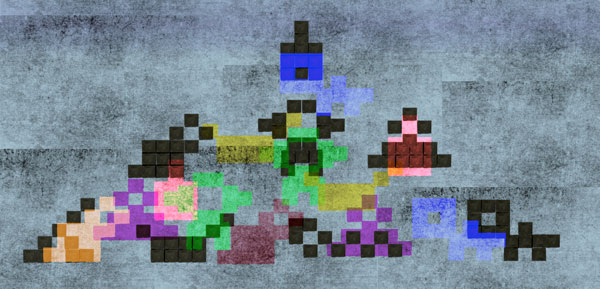I was wondering why everyone in LA always dresses and talks like they’re at work and stoned and then I remembered it’s because they probably are. In 2016 it’s okay to go to work dressed like you’re at Coachella but it’s also okay for your boss to check your Facebook to see if you’re at Coachella.
The strange part is how completely art has signed on to this same program: art is always at work and always stoned. In the age of skittish public money and capricious private money, art has never been more eager to talk up how hard it works to respectable society despite (and occasionally, ballsy, because of-) not really being able to explain what it does other than in terms of protests, critiques and “counter-narratives to the meta-linguistic hegemonies of” that same society. Art wants the world to pay it to come to work and get high and make fun of the boss, and is willing to bleach the green out of its hair to do it.
In art and life, the capitulation has been total and largely voluntary—for largely the same reasons and with a largely similar downside. People publicize their private lives to seem cool, relatable and relevant to a wide swath of potential friends/lovers/patrons/customers and the result is a flattening of their human qualities down to only those which they themselves believe are marketable; art talks up its Meanings to seem cool, relatable and relevant to a wide swath of potential critics/dealers/curators/collectors and the result is a flattening of the work toward only what is unambiguously interpretable. The biggest difference is the flattening of people is just an act—complex humans still exist behind sunglassed and vacationing avatars—whereas in many cases the art actually has forgotten it can be anything but a delivery system for unpackables.
The dominant culture is all too aware that if there were some bomb hidden under the table in art’s “counternarratives,” it would’ve gone off years ago. A big flat metal house Roy Lichtenstein Inc had somebody make has been sitting there weighing 19,000 pounds and being really ironic in plain view of the Capitol since Clinton’s second term and it did absolutely fuck-all to stop the subprime mortgage crisis.
In order for art to reach us, it has to speak to something that resonates with us, but the idea that its greatest strength lies in its articulateness limits its power. The truth is, in 2016, the degree to which a piece of fine art is doing identifiable work is precisely the degree to which it is not a threat. Even the most scathing critique (and, let’s be honest: art’s critiques are way too elliptical to be scathing) of power is still worrying about power—and power uses power to soothe those worries. What power is really afraid of isn’t the work art does—it’s the other thing. The not-work. The abandonment of the value of industry and industriousness in favor of what people used to start doing at 5 p.m. Power hates the idea that fine art, this least mass-marketable form of culture, might do what it’s good at: play. Because an individual that is already happily playing is an individual who can’t be bought.
This is why, to this day, the only scary thing about art in the pop cultural mind is your daughter majoring in it. This is why galleries and museums are open during work hours instead of play hours and look like banks instead of bars. This is why deeply immersive forms of art (first drama, then novels, now video games) draw attacks from people claiming they pull people out of life. This is why the death of every great artist is officially eulogized in ways that give their art a moral. So long as it is all work we are all part of a project encompassing George Washington, Harriet Beecher Stowe, Bill Gates and Beyonce and everyone else who ever did or made a good thing; then everything we do can be judged and ranked by the degree to which it advances that project, and anything less lets the world down. If we are, however, individuals amid individual experiences that do not have public, shared, known lessons or values, then we want our weekends back.
Weekends, by the way, were invented by rebel Jews and labor unions. When we realize the only thing we have in common is we like play more than work, then we are a terrible threat to the way things are.


